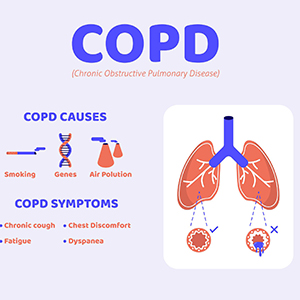Clinical course of COPD in patients with Arg16Gly (rs1042713) polymorphism of ADRB2 gene

Submitted: May 7, 2022
Accepted: September 2, 2022
Published: September 13, 2022
Accepted: September 2, 2022
Abstract Views: 970
PDF: 337
Publisher's note
All claims expressed in this article are solely those of the authors and do not necessarily represent those of their affiliated organizations, or those of the publisher, the editors and the reviewers. Any product that may be evaluated in this article or claim that may be made by its manufacturer is not guaranteed or endorsed by the publisher.
All claims expressed in this article are solely those of the authors and do not necessarily represent those of their affiliated organizations, or those of the publisher, the editors and the reviewers. Any product that may be evaluated in this article or claim that may be made by its manufacturer is not guaranteed or endorsed by the publisher.
Similar Articles
- Carlos A. Jiménez-Ruiz, Marcos Garcia Rueda, Manuel A. Martinez Muñiz, Jacobo Sellarés, Maria A. Jiménez-Fuentes, Lourdes Lázaro Asegurado, Esther RodrÃguez Gonzalez, Concepción Rodriguez Garcia, Oriol Armengol, Emilia Abad, Teresa Peña, Adolfo Domenech del Rio, Juan A. Riesco Miranda, Varenicline in smokers with severe or very severe COPD after 24 weeks of treatment. A descriptive analysis: VALUE study , Monaldi Archives for Chest Disease: Vol. 87 No. 3 (2017)
- M. Lusuardi, C. Lucioni, F. De Benedetto, S. Mazzi, C.M. Sanguinetti, C.F. Donner, GOLD severity stratification and risk of hospitalisation for COPD exacerbations , Monaldi Archives for Chest Disease: Vol. 69 No. 4 (2008): Pulmonary series
- Abhishekl Agarwal, Sakshi Batra, Rajendra Prasad, Anand Verma, Abdul Q. Jilani, Surya Kant, A study on the prevalence of depression and the severity of depression in patients of chronic obstructive pulmonary disease in a semi-urban Indian population , Monaldi Archives for Chest Disease: Vol. 88 No. 1 (2018)
- M. Lusuardi, F. Blasi, C. Terzano, C. Cricelli, N. Crispino, L. Comarella, F. De Benedetto, C.M. Sanguinetti, L. Allegra, C.F. Donner, Standards of care and clinical predictors in patients hospitalised for a COPD exacerbation - The Italian SOS (Stratification Observational Study) , Monaldi Archives for Chest Disease: Vol. 71 No. 4 (2009): Pulmonary series
- Claudio F. Donner, Sandro Amaducci, Elena Bacci, Sandra Baldacci, Maria L. Bartoli, Gianfranco M. Beghi, Alida Benfante, Sara Brighindi, Lucio Casali, Daniela Castiglia, Mario Cazzola, Alessandro Celi, Silvana Cianchetti, Giorgio Colombo, Claudia Crimi, Federico L. Dente, Giuseppe Di Maria, Annalisa Di Maria, Manuela Latorre, Federico Lavorini, Sara Maio, Claudia Mannini, Riccardo Messina, Pier Luigi Paggiaro, Patrizia Pignatti, David Price, Nicola Scichilone, Marzia Simoni, Antonio Spanevello, Martina Stagno d’Alcontres, Shawna Tan, Roberto Torchio, Giovanni Viegi, Dina Visca, Emiel F.M. Wouters, Shaylynn Yu Hui Xin, Inhalation therapy in the next decade: Determinants of adherence to treatment in asthma and COPD , Monaldi Archives for Chest Disease: Vol. 88 No. 1 (2018)
- P. Trerotoli, N. Bartolomeo, A.M. Moretti, Hospitalisation for COPD in Puglia: the role of hospital discharge database to estimate prevalence and incidence , Monaldi Archives for Chest Disease: Vol. 69 No. 3 (2008): Pulmonary series
- D. Scala, S. Cozzolino, G. D’Amato, G. Cocco, A. Sena, P. Martucci, E. Ferraro, A.A. Mancini, Sharing knowledge is the key to success in a patient-physician relationship: how to produce a patient information leaflet on COPD , Monaldi Archives for Chest Disease: Vol. 69 No. 2 (2008): Pulmonary series
- M. Justine, F. Tahirah, V. Mohan, Health-related quality of life, lung function and dyspnea rating in COPD patients , Monaldi Archives for Chest Disease: Vol. 79 No. 3-4 (2013): Pulmonary series
- Andrea Zanini, Francesca Cherubino, Patrizia Pignatti, The use of roflumilast in COPD: a review , Monaldi Archives for Chest Disease: Vol. 79 No. 3-4 (2013): Pulmonary series - Supplement 1
- A. Kaparianos, F. Sampsonas, D. Lykouras, G. Efremidis, P. Drakatos, K. Karkoulias, C. Gogos, K. Spiropoulos, Association of ET-1 gene polymorphisms with COPD phenotypes in a Caucasian population , Monaldi Archives for Chest Disease: Vol. 75 No. 2 (2011): Pulmonary series
You may also start an advanced similarity search for this article.

 https://doi.org/10.4081/monaldi.2022.2314
https://doi.org/10.4081/monaldi.2022.2314





